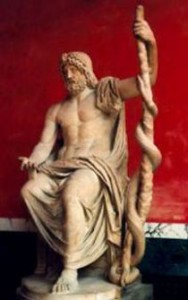Three questions & answers
 Three Q/A from QUORA (on brain, philosophy, QM, NDE, consciousness)
Three Q/A from QUORA (on brain, philosophy, QM, NDE, consciousness)
- How does the brain understand philosophy?
M. The brain… understanding philosophy? My reply to this is similar to the one I gave recently to another question and which was based on Socrates’ answer to an observation that someone was making. The man saw a pool of water being stirred by a stick held by a man and said that the stick was stirring the water. To which Socrates replied: ‘Is it the stick, or the man moving the stick?’ (Which one is the real agent – the material, or the instrumental cause, in Aristotelian terms?).
Equally, is it the brain, or the mind which ‘moves’ the brain which moves the stick which stirs the water?
Is it the brain, or the mind which (using the brain as an instrument) understands philosophy?
Actually, it is consciousness (as a substrate) using the mind using the brain… Consciousness itself does not do anything.


